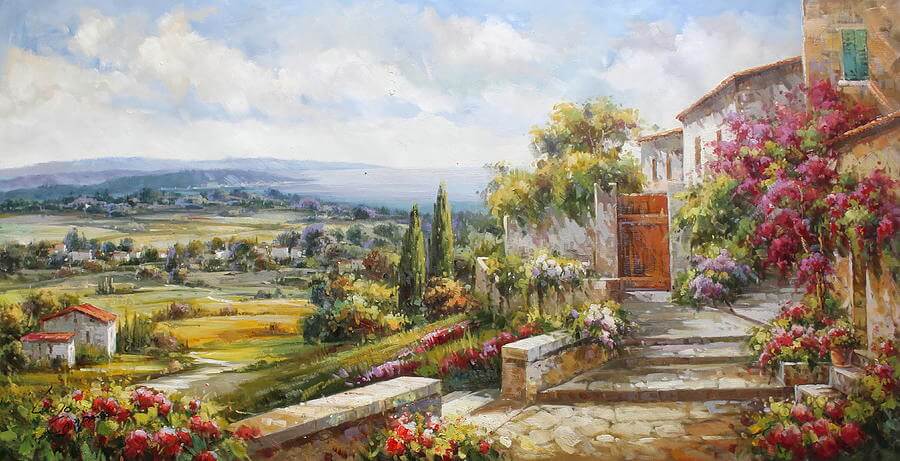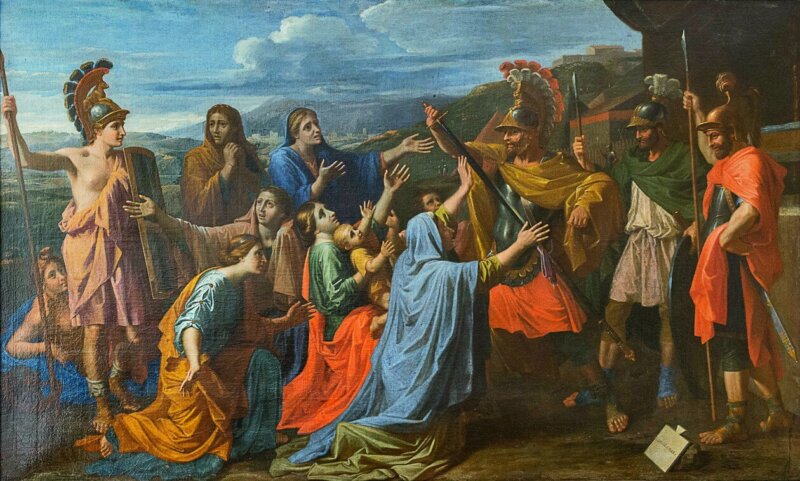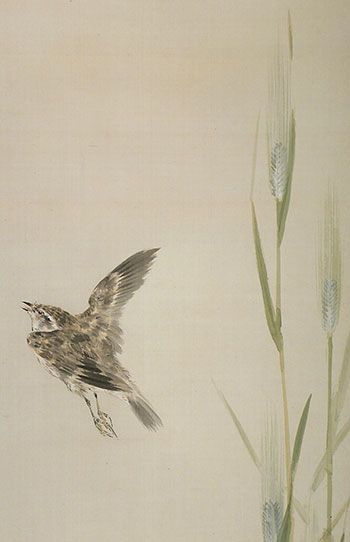Made in Italy: A Poem

There is this room. There are the paintings,
Family photographs standing in their frames,
Sofas, cushions – books, magazines, coasters
On the table – the little Italian clock. There
Is this room, and you and I are in it: one
Of the rooms in which we live most, one which
We have, through time, made comfortable
With things that are precious to us and
The ordinary – accepted as an invitation
To lounge, be forgetful, idle, in a kind of peace
Or freedom, together, amidst what is familiar.
Outside this room, ourselves, tonight – outside –
The storm continues that has blown all day:
An easterly, driving heavy, scattering rain
Into our front wall, the garage door. But this
Too is comforting – being already known,
Experienced before – and wraps, in sounds
Of wind and water, the room and ourselves
In inner security. So our soft sofas, the turbulence
Outside, perception, feeling, form parts of
A whole, a unity bound within the common
Adventures and routines of everyday life.
There is truth in this, but not enough to rest in:
As if this were all, and all were as it should be,
At home together, at home in time and space;
The world within and that without,
If not in harmony, at least in functioning
Normality. For this is mere reverie: neither
Perception nor meditation, but a fantasy
Of sufficiency. It is to laze in material wellbeing,
Or not to laze, but to will a kind of completion –
Less acceptance than persuasion – that being
Has been granted, is nothing to be sought.
But, no, will is not the thing. To assert that what is,
Is here and all encompassing, and we – in comfort
Or otherwise – remain within this vivid
Functionality, is no act of will: it is its failure.
It was that, I know, in childhood, when a gale
Like this at night was a thing of terror, and
I crept below long, low windows to my bed;
The outside an overwhelming vehemence,
Wholly enveloping me. And, at times, the same
Lack of separation – as intensely felt – brought me
Bliss, in contemplation of natural communion.
But I have outgrown these old susceptibilities,
A child’s excess of dependency (and nothing
Startling in the achievement). And now?
And now, amidst maturity’s usual luxury, I see
That neither you nor I, the storm outside, this room
With its presences and furnishings – nothing
Presented – exists, is made whole, except
In otherness, in meaning. And in this truth we
Grasp being – that of everything – and grasp, for
We cannot hold it, being beyond the fact of birth,
Engagement in the material, beyond our dying.
So much abstraction. But how to say it plain?
The clock I see and hear – bought for coins
In a hospice shop, the battery cover closed
With black tape – carries in its sound and face
Meanings of another place, invisible, marvellous:
An Italy beyond memory (an Easter in Pesaro,
The lemons fruiting in rows of pots), beyond myself
(Reflected in Montefeltro’s Urbino marquetry), but
Fixed in more of life than can be comprehended,
And we are worth as little as this object was,
Until we reach beyond the obvious, our setting.
Reach beyond the obvious? What is it to assert
This? It is to know, yes, how brief this time is,
How poor my thoughts and feelings, rounding
On themselves. And all this, the very least of it:
Merely human, I am the face of every mean
And discarded thing; the form and state
Of what is properly rejected; stamped, at base,
As an object of mass production. What my
Two hands have made is mostly worthless:
A filling in of unreckoned time, ticked away
In self-absorption, circling in a frame of pride.
None of this can be denied: I know myself,
And I am not alone. What my bare existence
Adds to – counting all those born, produced,
To some use or worth, or none, now, before
And after me – hardly deserves a glance. And yet,
And yet, I can be more than this, and unlike
This little object, the matter is of choice:
To be or to become; to mark time or transcend it
In some point of good ahead, though I will
Never reach it; to step towards what is
Timeless, all the while knowing time will end it.
So you and I, tonight, turning towards books
Put down, an email to write, the kettle
At the boil (these, our evening existences),
Not in time but in spite of it, must register
Somehow, in every moment of movement or
Of stillness, that we are more than these
Exigencies of living, but are creations beyond
The mortal – both beyond and always within reach –
As in love we turn towards the other, to a place
Where this room, storm, the clock, you and I,
Are represented in time but are outside of it.




